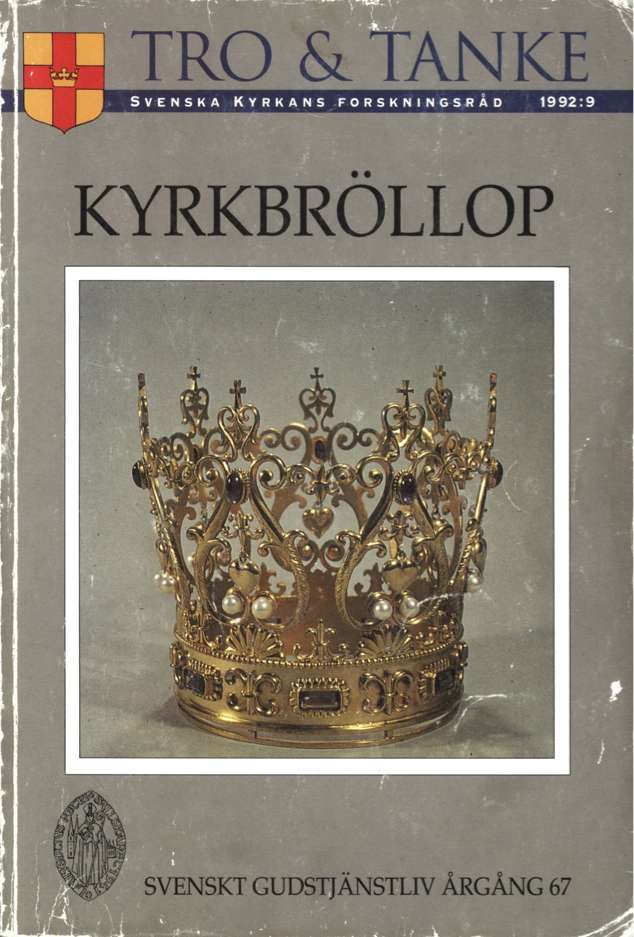Äktenskapets sakramentalitet - till frågan om äktenskapets teologiska motivering
Abstract
In all churches, "marriage" has, in various ways, been submitted to debate. In the Church of Sweden, as in many other churches, marriage has developed into a problem. The teaching authorities of the Church have not, however, presented any guidelines to the believers since 1973.
The purpose of this essay is to discuss the basic difference between a theology of marriage based on a theology of creation and thereby on the "natural law" and a theology of marriage derived from the "Christian revelation". The Church of Sweden liturgy for weddings provide the point of departure.
In the Worship Book of 1986, the Church of Sweden affirms the traditional Lutheran teaching that marriage is to be referred to the realm of "natural law" and interpreted in the context of the theology of creation. In creation, God has instituted marriage. Thus, one can say that there exists a Christian interpretation of matrimony but not a Christian marriage per se. This distinction is in this essay disputed in favour of the following interpretation of marriage:
1. Fundamentally, marriage is common to all mankind and according to obvious human experiences it can function as a term for bi-sexual, generally life-long, relationships. This is open to various interpretations.
2. Christian marriage is a part of - and expression for - this general relation between man and woman and must be interpreted, according to the Christian theology of creation, as part of God’s creative work.
3. There is, as regards human beings, always a need for an inculturation of nature. Then, marriage is always a part of culture. In traditional Christian countries, this inculturation is marked by the public declaration of the free consensus of the bridal couple. This is not derived from Christian or Jewish theology but Roman antique law. This type of consensus is seen by the churches as the constitutive element of holy matrimony.
4. According to Ephesians 5:32, it is possible to assume that there is not only a Christian view on marriage based on a theology of creation, but also a Christian marriage. This kind of matrimony is not only given by God in creation but is a Christian institution given to the Church, reflect ing the intimate relation between Christ and his Church (and vice versa).
5. So, a Christian marriage is not only an instrument for the love between man and woman, and procreation, but also a sign for the mutual love between Christ and His Church. In this perspective, love between husband and wife not only depict or point at the mutual love between the Church and Christ but it also represents and implements it in the marriage and in the world. In this way marriage is a means of grace and therefore, in a broad sense, a sacrament.
Downloads
Publicerad
Nummer
Sektion
Licens
© författarna, Laurentius Petri Sällskapet för svenskt gudstjänstliv samt Artos & Norma bokförlag. Det är tillåtet att kopiera och använda material ur Svenskt Gudstjänstliv för forskningsändamål om källan anges. För övriga ändamål kontakta respektive artikelförfattare samt förlaget. Särskilda restriktioner kan gälla för bildmaterial.


